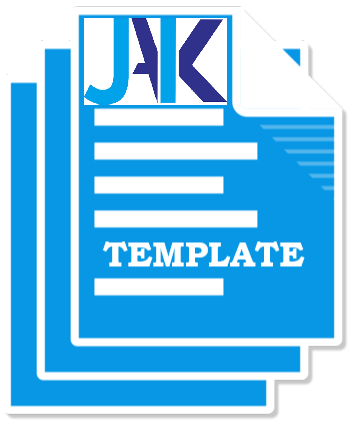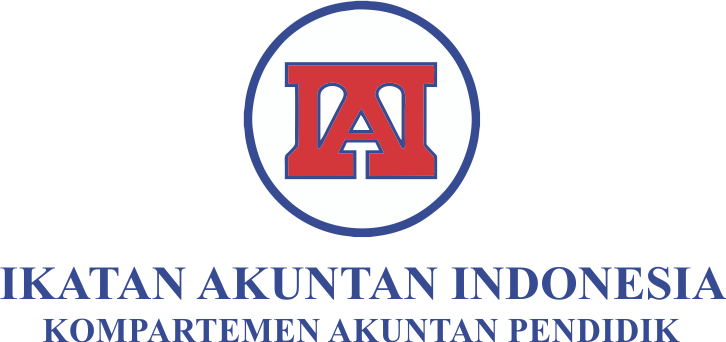Determinan Kinerja Pengguna Modul Pembayaran Sakti dengan Kepuasan Pengguna sebagai Variabel Intervening
Abstract
This research to analyze the implementation of payment module of SAKTI application by analyzing the factors that influence net benefits (user performance) with user satisfaction as intervening of payment module of the SAKTI application. Samples were taken using non-probability sampling technique (voluntary sampling) from 11 ministries/agencies that have used payment module web-based SAKTI application. The number of samples collected amounted to 51 samples. Data was processed and analyzed using the SmartPLS software version 3.2.9. This study obtained the results that both system quality and information quality have a significant effect on user satisfaction with a positive relationship direction as well as user satisfaction which has a significant and positive effect on user performance. Based on the processing of data and analysis from the data that has been collected, it can be concluded that in general, the use of the SAKTI application payment module has been running well and providing satisfaction to users and affecting user performance.
Keywords
Full Text:
PDFReferences
Amriani, T. N., & Iskandar, A. (2019). Analisis Kesuksesan Implementasi Sistem Aplikasi Keuangan Tingkat Instansi (SAKTI) pada Satuan Kerja di Lingkungan Badan Pendidikan dan Pelatihan Keuangan (BPPK). Kajian Ekonomi Dan Keuangan, 3(1), 54–74.
At-tamimi, R. M. R., & Siregar, T. E. (2021). Measurement of Successful Implementation of Institution Level Financial Application System (SAKTI) Web Full Module with DeLone and McLean Information System Success Model Approach. Budapest International Research and Critics Institute (BIRCI-Journal): Humanities and Social Sciences, 4(4), 10098–10107.
DeLone, W. H., & McLean, E. R. (1992). Information Systems Success: The Quest for the Dependent Variable. Information Systems Research, 3(1), 60–95.
DeLone, W. H., & McLean, E. R. (2003). The DeLone and McLean Model of Information Systems Success: A Ten-Year Update. Journal of Management Information Systems, 19(4), 9–30.
Ghozali, I., & Latan, H. (2016). Partial Least Squares Konsep, Metode dan Aplikasi Menggunakan Program WarpPLS 5.0. Semarang: Badan Penerbit Universitas Diponegoro.
Hadi, M. (2022). FAKTOR YANG MEMENGARUHI KEBERHASILAN IMPLEMENTASI APLIKASI SAKTI (BERDASARKAN PERSPEKTIF PENGGUNA). Jurnal Akuntansi Kompetif, 5(3), 390–397.
Haryono, S. (2017). Metode SEM untuk Penelitian Manajemen AMOS Lisrel PLS. In Jakarta: Luxima Metro Media. Jakarta: Luxima Metro Media.
Hu, L., & Bentler, P. M. (1999). Cutoff criteria for fit indexes in covariance structure analysis: Conventional criteria versus new alternatives. Structural Equation Modeling: A Multidisciplinary Journal, 6(1), 1–55.
Huang, Y.-M., Pu, Y.-H., Chen, T.-S., & Chiu, P.-S. (2015). Development and evaluation of the mobile library service system success model: a case study of Taiwan. The Electronic Library.
Jogiyanto. (2007). Model Kesuksesan Sistem Teknologi Informasi. Yogyakarta: Andi.
Jogiyanto, H. M., & Abdillah, W. (2015). Partial Least Suare (PLS): Alternatif Structural Equation Modeling (SEM) dalam Penelitian Bisnis. Yogyakarta: Andi.
Kim, K., Trimi, S., Park, H., & Rhee, S. (2012). The impact of CMS quality on the outcomes of eâ€learning systems in higher education: an empirical study. Decision Sciences Journal of Innovative Education, 10(4), 575–587.
Pambudi, K. H. (2018). Analisis Dimensi Kesuksesan Implementasi Sistem Aplikasi Keuangan Tingkat Instansi (Sakti) Pada Satuan Kerja Wilayah Provinsi Jawa Timur Dengan Pendekatan Delone And McLean Information System Success Model. Jurnal Ilmiah Mahasiswa FEB, 6(2).
PMK 171, R. I. PMK No. 171/PMK.05/2021. , Pub. L. No. PMK No. 171/PMK.05/2021 (2021).
PMK 212. PMK Nomor 212/PMK.05/2015 tentang Jurnal Akuntansi Pemerintahan Pada Pemerintah Pusat. , (2019).
Prabowo, N. T. (2017). Analisis Sistem Aplikasi Keuangan Tingkat Instansi (SAKTI) dengan Pendekatan Technology Acceptance Model. Indonesian Treasury Review: Jurnal Perbendaharaan, Keuangan Negara Dan Kebijakan Publik, 2(2), 55–66.
Ringle, Christian M, Wende, Sven, Becker, & Jan-Michael. (2022). Model Fit.
Sholihin, M., & Ratmono, D. (2013). Analisis SEM-PLS dengan WarpPLS 3.0. Yogyakarta: Andi.
Sholihin, M., & Ratmono, D. (2020). Analisis SEM-PLS dengan WrapPLS 7.0 untuk Hubungan Nonlinier dalam Penelitian Sosial dan Bisnis (Edisi 2). Yogyakarta: Penerbit ANDI.
Sorum, H., Medaglia, R., Andersen, K. N., Scott, M., & DeLone, W. (2012). Perceptions of information system success in the public sector: Webmasters at the steering wheel? Transforming Government: People, Process and Policy.
Sri Mulyani. (2022). Sri Mulyani Keluhkan 24 Ribu Aplikasi Pemerintah: Banyak dan Boros . Retrieved February 24, 2023, from https://katadata.co.id/agustiyanti/finansial/62cc0215de92a/sri-mulyani-keluhkan-24-ribu-aplikasi-pemerintah-banyak-dan-boros
Sugiyanto, H., Hadi, M., Ambarwati, R. D., & Khuluq, A. (2022). Determinan Kepuasan dan Kinerja Pengguna Modul GLP SAKTI. METHOMIKA: Jurnal Manajemen Informatika & Komputerisasi Akuntansi, 6(2), 205–214.
Supomo, B., & Indriyanto, N. (2009). Metode Penelitian Bisnis Untuk Akuntansi dan Manajemen. Yogyakarta: BPFE-Yogyakarta.
Triola, M. F. (2015). Essentials of statistics. Pearson Addison Wesley Boston, MA, USA:
Urbach, N., & Muller, B. (2012). The Updated DeLone and McLean Model of Information Systems Success. In Information systems theory (pp. 1–18). Springer.
Yakubu, M. N., & Dasuki, S. (2018). Assessing eLearning systems success in Nigeria: An application of the DeLone and McLean information systems success model. Journal of Information Technology Education: Research, 17, 183–203.
Yakubu, N., & Dasuki, S. (2018). Measuring E-Learning Success in Developing Countries: Applying the Updated DeLone and McLean Model. Journal of Information Technology Education: Research, 17(1), 183–203.
DOI: https://doi.org/10.37058/jak.v18i1.6717
Refbacks
- There are currently no refbacks.
Copyright (c) 2023 JURNAL AKUNTANSI

This work is licensed under a Creative Commons Attribution-NonCommercial-ShareAlike 4.0 International License.

Jurnal Akuntansi by Jurusan Akuntansi Fakultas Ekonomi dan Bisnis Universitas Siliwangi is licensed under a Creative Commons Attribution-NonCommercial-ShareAlike 4.0 International License.
Based on a work at http://jurnal.unsil.ac.id/index.php/jak.
Jurnal Akuntansi Visitor Counter JAK Stats





